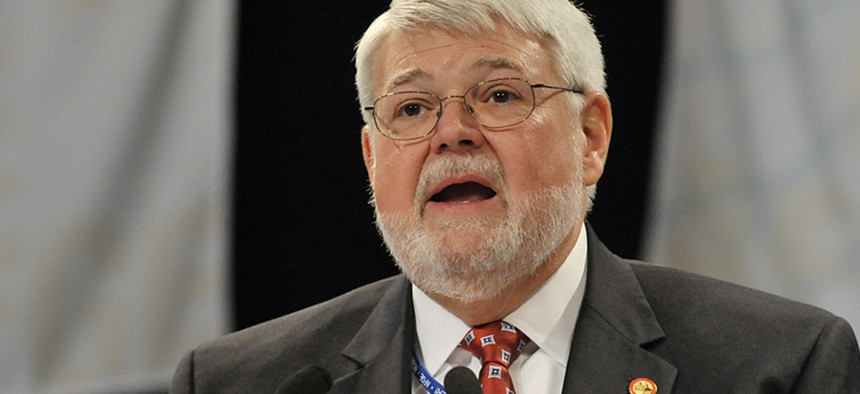
The administration has not committed yet to supporting retroactive pay for furloughed employees, said J. David Cox Sr., president of the American Federation of Government Employees. AFGE
Employees Will Find Out Their Shutdown Furlough Fate By the End of Friday
Agencies also are expected to post their contingency plans for a government shutdown before the weekend.
Federal employees should know by the end of Friday whether they will be furloughed if the government shuts down on Oct. 1
The Obama administration has directed agencies to have supervisors informally notify employees whether they should report to work on Tuesday if the government closes because of a lapse in funding. Non-excepted employees will receive official furlough notices on Oct. 1, if necessary.
The Office of Management and Budget and the Office of Personnel Management also told agencies to post their shutdown plans online by Friday afternoon. If the government closes, roughly 800,000 federal civilian employees could be furloughed.
OMB and OPM officials briefed federal employee unions on Thursday morning on the possibility of a government shutdown next week, according to union leaders. The administration has not committed yet to supporting retroactive pay for furloughed employees, said J. David Cox Sr., president of the American Federation of Government Employees. But Cox said the union leaders told officials they expect furloughed employees to receive back pay for missed work days. Congress has the authority to grant retroactive pay to furloughed employees in such cases when government operations resume. Lawmakers have done just that in previous shutdowns, but there is no guarantee they will do so this time, if the government partially shuts down on Tuesday.
Cox said administration officials “listened to my comments” about retroactive pay and not using federal employees’ compensation as a bargaining chip in larger budget negotiations, which has happened before. He said officials “reiterated that the president would move forward with the 1 percent pay increase” that he has proposed for workers in 2014. “Our people want to go to work, serve the American public, and want less uncertainty in their lives,” Cox said.
Civilian federal employees have been subjected to a three-year pay freeze; automatic, across-the-board budget cuts that resulted in furloughs for thousands of workers this summer; and now the threat of a government shutdown. And House lawmakers on Thursday reportedly were considering a provision that would require federal employees to contribute more to their pensions, as part of a bill to raise the debt ceiling.
Colleen Kelley, president of the National Treasury Employees Union, said NTEU “will work to ensure that federal employees are not further harmed in any negotiations on the shutdown or the debt ceiling.” Kelley, who also was briefed by administration officials on Thursday, said that a government shutdown was “entirely avoidable” and would hurt federal employees, agencies and the public.
Lawmakers and political appointees are among those not subject to furlough in the event of a government shutdown. Last week, a House Republican introduced a bill that would withhold pay for members of Congress if the government shuts down. “Salary and job performance should be tied together, and if members of Congress aren’t doing their job, that should be reflected in their salary,” said Rep. Chris Collins, R-N.Y. “The American people deserve more from their Congress and it is time, as members of Congress, that we put ourselves at the back of the line and put our constituents first in a government shutdown.”
The Government Shutdown Fairness Act (H.R. 3160) would hold lawmakers’ paychecks in escrow until the end of the current Congress.
NEXT STORY: Federal Pensions Could Be At Risk -- Again







